Swedish sustainable menswear brand ASKET thinks that men shouldn’t have to compromise on their foundational wardrobe anymore. Seeing an opportunity to step away from fashion’s frenetic seasons while still creating items that people will love, ASKET has a permanent collection of timeless garments that are high quality and thoughtfully-made.
“My co-founder Jakob and I found that brands changed their style and fit every season, so finding the same t-shirt or oxford again was hard,” says August Bard-Brigéus, “We were finding unnecessary details, tasteless colours, overpaying for ‘quality,’ or paying too little for garments of dubious origin.”
 | 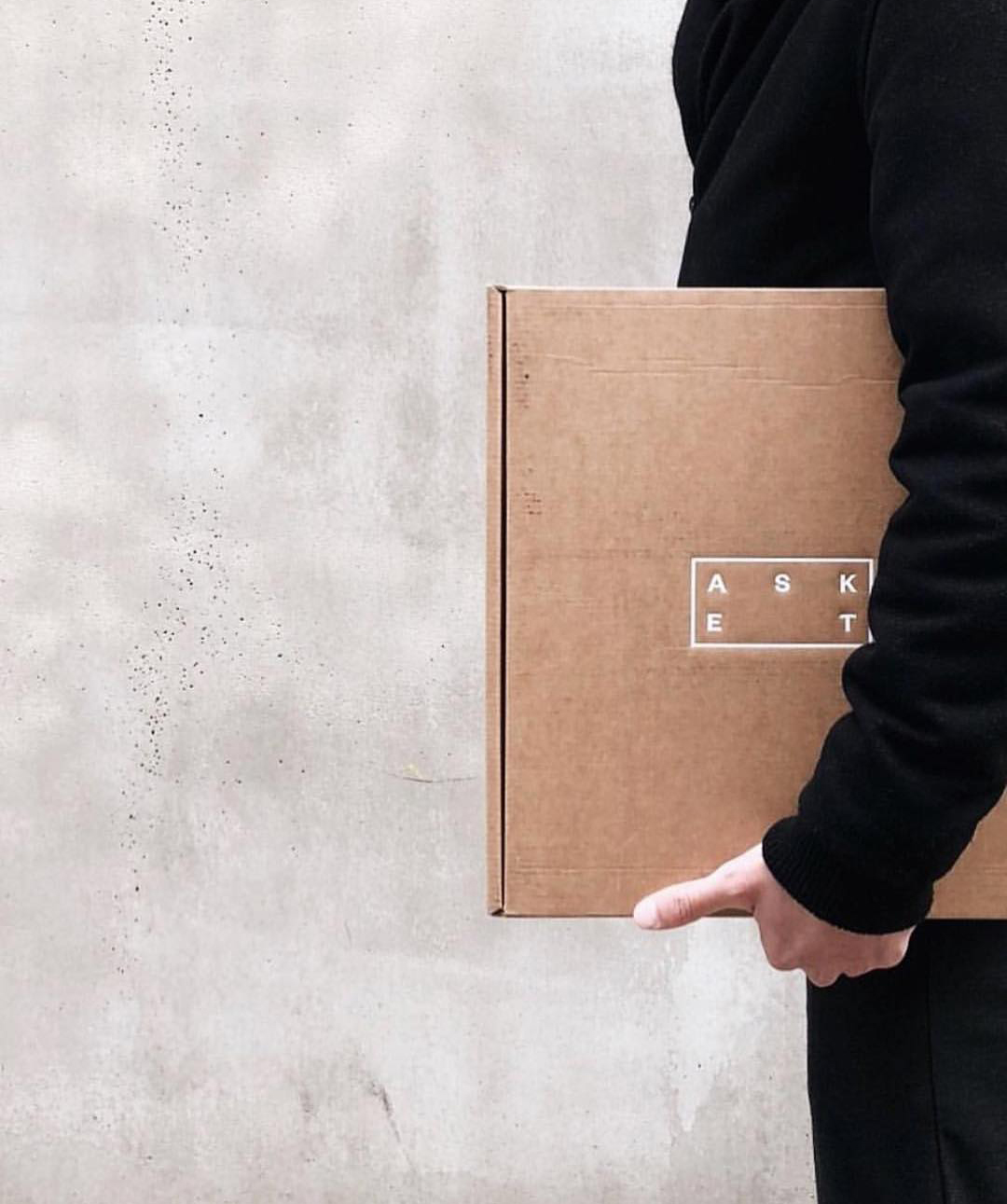 |
Essentials like button-down shirts, chinos, and sweaters are the cornerstone of every wardrobe, and to be able to consistently find the same fit – the one you always find yourself reaching for – makes life easier. ASKET’s garments are focused on correct sizing, garment care as ways to ensure your clothes last season after season.
“Often as consumers, size is where we compromise,” says August, “which is why we created our sizing system. “On top of the traditional XS – XL, it allows customers to choose if they want short, regular, or long versions of every single piece – not just trousers – so that you can find the clothes that fit not just your general ‘size,’ but your actual body.”
“We’re three years in so we’re small, but will eventually build up our collection,” August says, when I ask why their pieces only go up to XL. ASKET ships all over the world, with their largest markets in Scandinavia and Germany, with the USA catching up. “We wanted to start out on an international scale because we think what we’re making is relevant for people all over the world; it’s not just about local markets,” August explains.

ASKET’S core message is transparent production. For ASKET, “transparency” is not a buzzword. Each item comes with a full transparency report and offer a percentage for how much of a product’s journey is traceable. This takes into account where the raw materials were farmed to the factories where the clothes are produced. ASKET has made it a goal to have full traceability across their entire collection by the end of 2019.
“When we started the business, we were looking around at the fashion industry and there was just so much work to do,” says August. “A lot of brands were starting to use ‘sustainability’ and ‘ethical’ as these kind of bandwagon words, and we didn’t want to do that. We want to make real changes in our industry by showing people that there’s another way.”
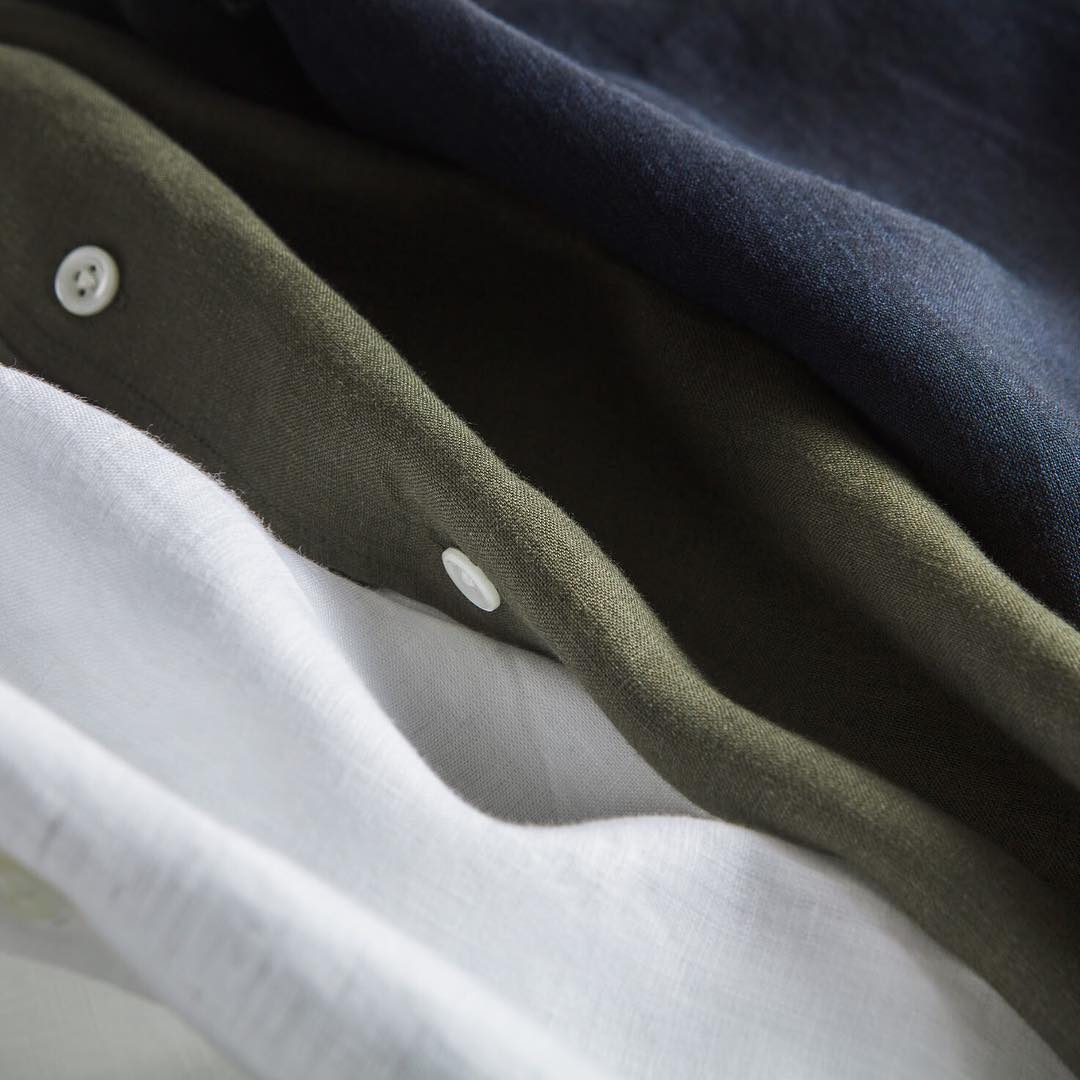 | 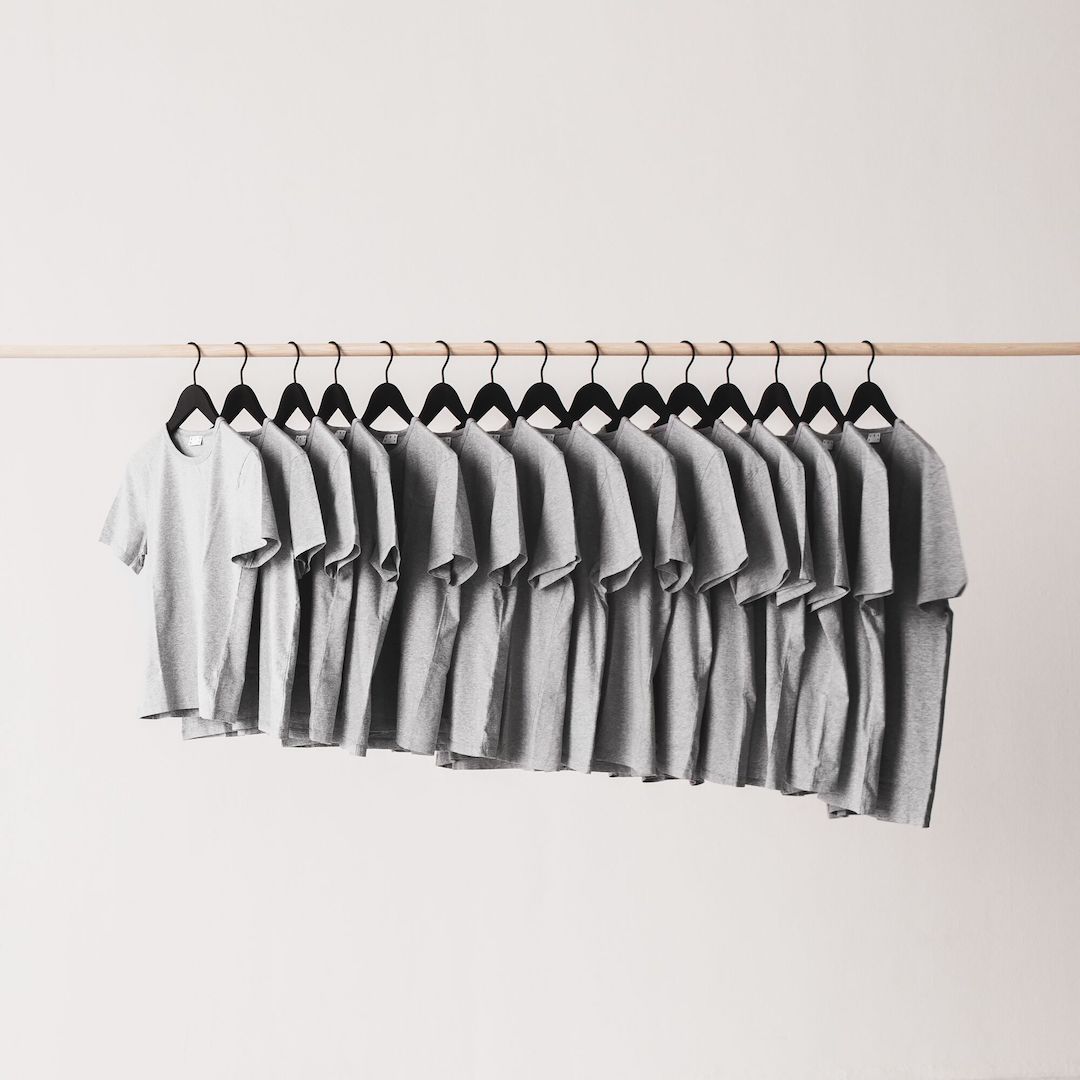 |
 | 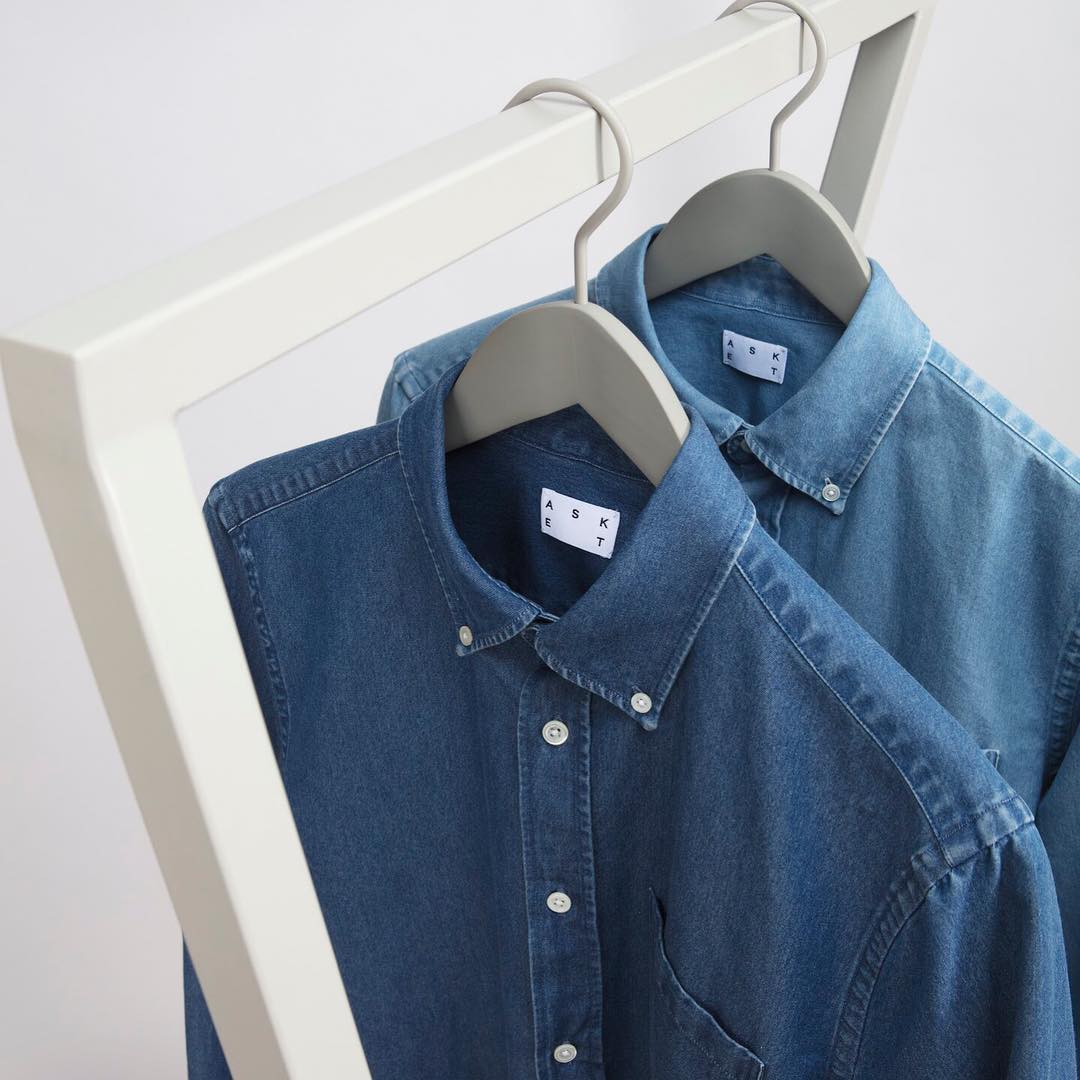 |
And they’ve done that, in more ways than one. Not only have ASKET proven that it’s possible to be close to fully transparent, their minimalist designs are long-lasting, so you’ll buy less over time. And the catalyst for consumers is that the prices are really reasonable. The brand makes it easy to see how reasonable with a comparison feature on their webshop that indicates the traditional retail value of the item. For example, they sell their Oxford Shirt for 650 DKK, but similar items typically sell for 1,000 DKK.
While ASKET currently only produces menswear, the clothes are basics, so they can be worn by anyone. “We know women buy our clothes too, ” August says, “but actually developing clothes as womenswear comes with another set of requirements for sizing, fit, and so on. So we’re happy for everyone to wear our clothes, but we do eventually want to create more specific pieces for women. That’s a long-term future plan, not something we’re doing now,” he says.
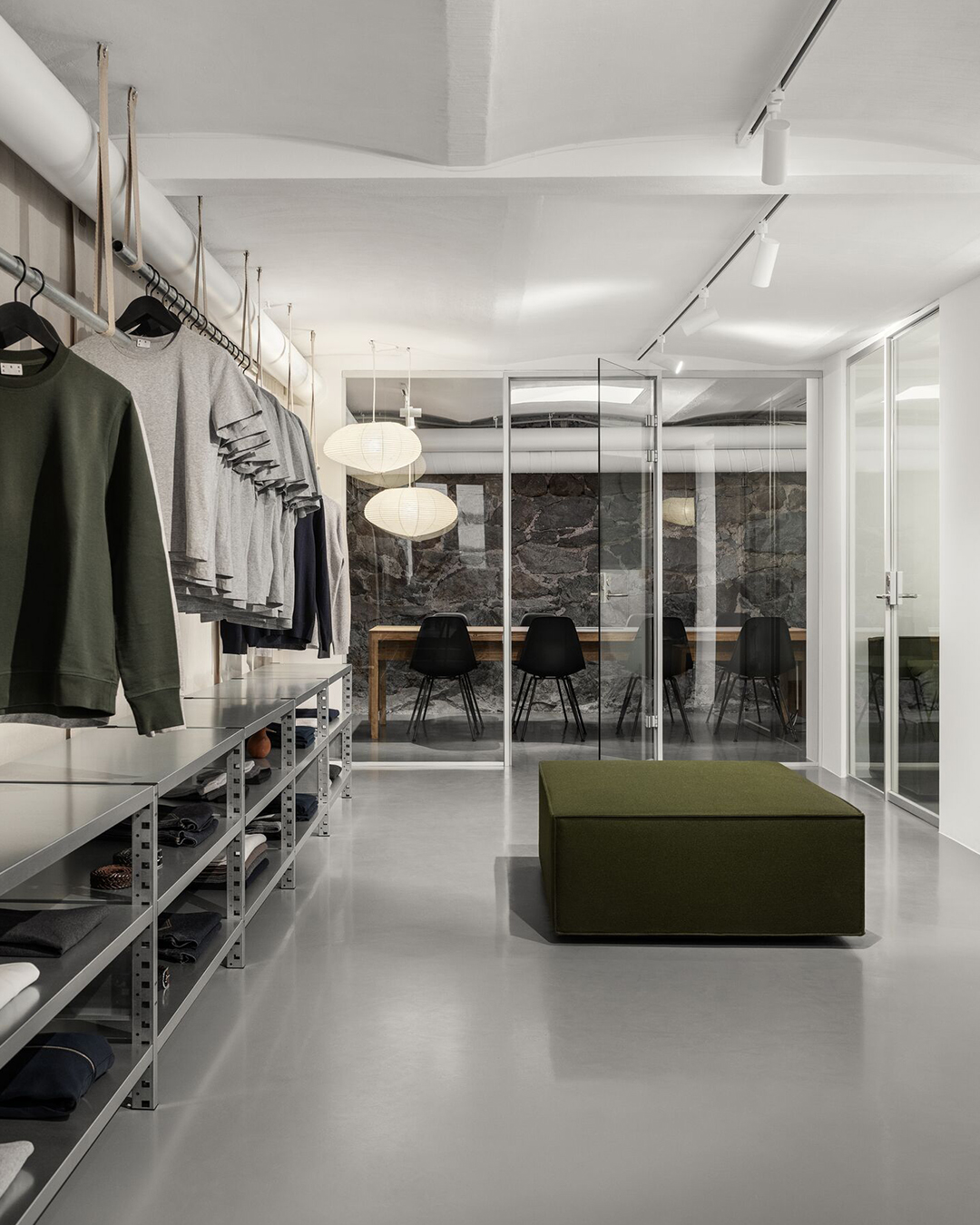 |  |
ASKET might be just starting out, but their vision is big. Rather than greenwashing and using vague keywords as a way to comfort their customers, the brand is making tangible change in what is possible for a clothing retailer. If they can do it, other brands can too; now let’s watch them grow.
Find out more about ASKET.

